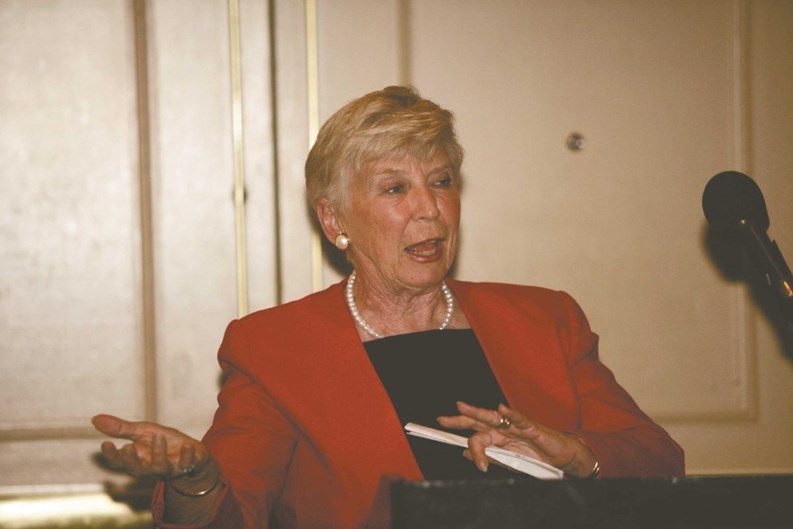Westchester County is known for, among other things, its grand, multi-million dollar mansions and historic homes found in its posh communities such as Scarsdale, Bronxville and Brewster. Many of these homes were built in the 1950s, when the economy was prosperous. That decade, World War II veterans returned to the job market and started families. To answer the need for more housing for these new families, many high-rise apartments, single-family homes and duplexes were also built. Westchester’s website, www.westchestergov.com, coins it as “a new era of suburbanization” for the American family.
Fast forward two decades to the 1970s and 1980s: Rental units weren’t profitable, so to encourage individual ownership of the apartments, some of the rental housing was converted to cooperatives. In 1979, the Cooperative and Condominium Advisory Council (CCAC) was formed to serve as a resource for elected board members of cooperatives and condominiums in Westchester.
“There was no entity available to represent the interests of homeowners who are not single-family homeowners,” says Ken Finger, chief counsel of the CCAC.
Today, the CCAC represents more than 400 cooperatives and condominiums in the Westchester and Mid-Hudson Region. It is a component organization of the Building and Realty Institute of Westchester and the Mid-Hudson Region (BRI). The BRI is one of New York state’s largest building, realty and construction industry membership organizations. Formed in 1946, the association is recognized as a leading force in the building and realty industry and has more than 1,700 members in 14 counties of New York State. The BRI consistently monitors issues that affect apartment rental properties, co-ops and condos, and property managers.
Weighing the decision to create a separate council for Westchester and the Mid-Hudson region instead of joining collaborative forces with New York City’s council was, according to Finger, like comparing apples and oranges.
“In Westchester, we’re dealing with a different governmental entity,” says Finger. “In New York City, you deal with the city council and the mayor, but in Westchester we deal with the county executive and the board of legislators. In addition, there is some legislation that is unique to Westchester and not presented in New York City. We also have a different labor agreement than New York City does.”
In addition to these differences, there is also the added complication that individual municipalities may have legislative issues particular to their own area. For example, Finger explains that a few years ago the city of New Rochelle instituted a New Rochelle-only garbage collection tax per resident and the council fought to have this tax stopped.
“It would also be too difficult for each municipality to have their own council too, especially when you’re dealing with villages, town boards, city councils, etc.”
Since its inception, the organization continues to focus on several key components: negotiations with service workers, education, referral services, lobbying, information, networking and insurance.
On the legislative front, the BRI and the advisory council have achieved great success over the years. In 2005, the BRI lobbied to defeat legislation that called for the amendment of the real property tax law and the real property law in relation to the assessment of specific condos and co-ops. Had the amendment passed, it would have produced significantly higher property taxes for co-ops and condos.
The organization also achieved recent success in a negotiating battle with the Service Employees International Union Local 32BJ. As a result, BRI and the union—representing residential building workers—achieved a new four-year labor contract for 2006 to 2010. BRI bargained on behalf of its component associations, including the Cooperative and Condominium Advisory Council (CCAC). According to an article written by Jeff Hanley in the CCAC’s monthly Impact newsletter—which includes articles on realty management, banking, personal finance and new industry developments—the negotiations ended a three-month negotiating process and averted a threatened strike. Provisions of the contract included a weekly increase over the life of the contract of about $50, increased employee contributions for health, pension and legal training benefits, and new hire and minimum wage rates for supers, assistant supers, handymen, utilitymen, porters and other personnel.
There are two current hot button topics BRI and the CCAC are investigating. One potential bill is a modification of methodology of tax on co-ops and condos and another that Albert Annunziata, executive director of CCAC, calls “a bill that threatens the flexibility and powers of the co-op board to decide who their neighbors are.”
In addition to fighting unfavorable legislation, the council develops seminars to educate their members on such topics as how to handle noisy neighbors, trouble employees, security issues, insurance, how to interview prospective shareholders, disaster preparedness, late payments and more. In November, the council held an Economic Symposium that featured well-known economist Marc Goloven as the keynote speaker. Members attended a 3M Fire Stop seminar presentation on residential and commercial fire protection products and were updated on the latest code requirements.
The programs are often repeated to address the needs of new members. Experts in real estate, law, insurance and utilities participate in the programs.
“This year, we are adding two new programs and possibly a third,” says Hanley. “One addresses individual unit owner insurance. Not all co-ops require individual unit owner/shareholder insurance and we know it’s absolutely important and necessary to show the importance of adequate insurance.”
Hanley explains further that the council is looking to expand their program to include seminars on the physical building issues—adequacy of waterproofing, capital maintenance, the value of proper landscaping—and more. They are also exploring the initial development of their first trade show tentatively scheduled for fall 2007.
The importance of the council is not just to deal with present day problems and issues, but also to forecast future issues on the horizon.
“In Westchester—and it’s probably the same in Rockland and Nassau—co-op living is still one of the last opportunities for affordable living in Westchester,” explains Annunziata.
CCAC chair Diana Virrill says that there is also a rise of young people relocating from New York City to rent co-ops in Westchester because of the affordability factor and their needs must be addressed as well.
“As a result, housing affordability and maintenance is of utmost importance to its members for now and the future.”
Although the rising cost of fuel leveled off as of this writing, Annunziata acknowledges that energy efficiency continues to be a concern. “The green movement is going to be critically important—especially financially—to these buildings and property management,” he says.
Several programs on fuel related issues and energy efficiency are now being developed.
The CCAC also draws on its BRI resources for referrals on a variety of services for board members, including legal advice, investment counseling, real estate expertise and help with maintenance problems.
Another important membership benefit in the CCAC is access to New York State Workers’ Compensation Group 530, which includes more than 500 co-ops and condos as members.
The BRI has a professional staff of 10, including consultants. The CCAC includes a 15-member board of directors comprised of co-op and condo board presidents and other representatives in a variety of industries—legal, real estate and more, which, according to Virrill, “brings a different viewpoint and conglomerate of expertise to the table. It also creates very lively discussions.”
For more information on the CCAC and the BRI, please visit www.buildingandrealtyinstitute.org.
Lisa Iannucci is a freelance writer and a frequent contributor to The Cooperator.






13 Comments
Leave a Comment